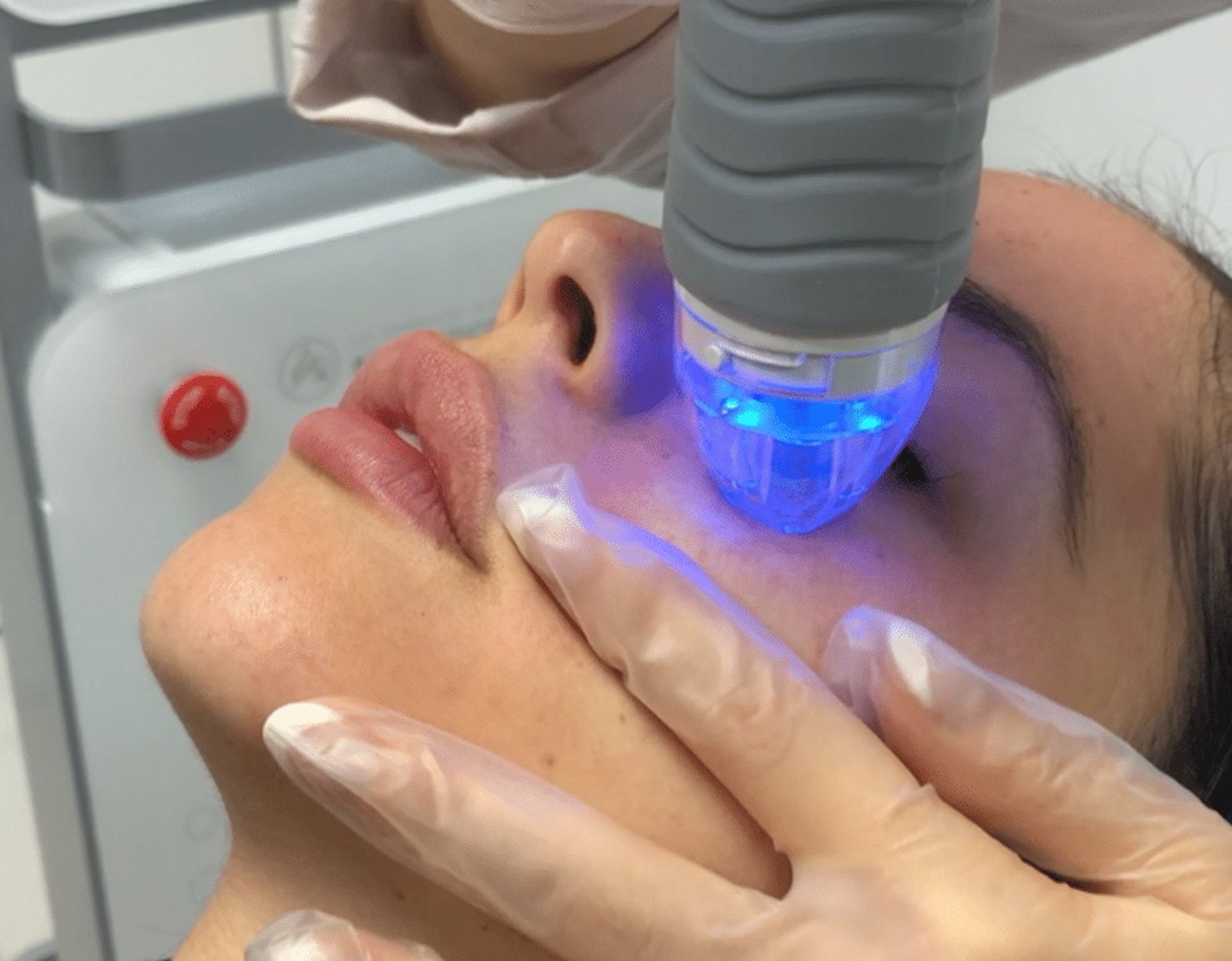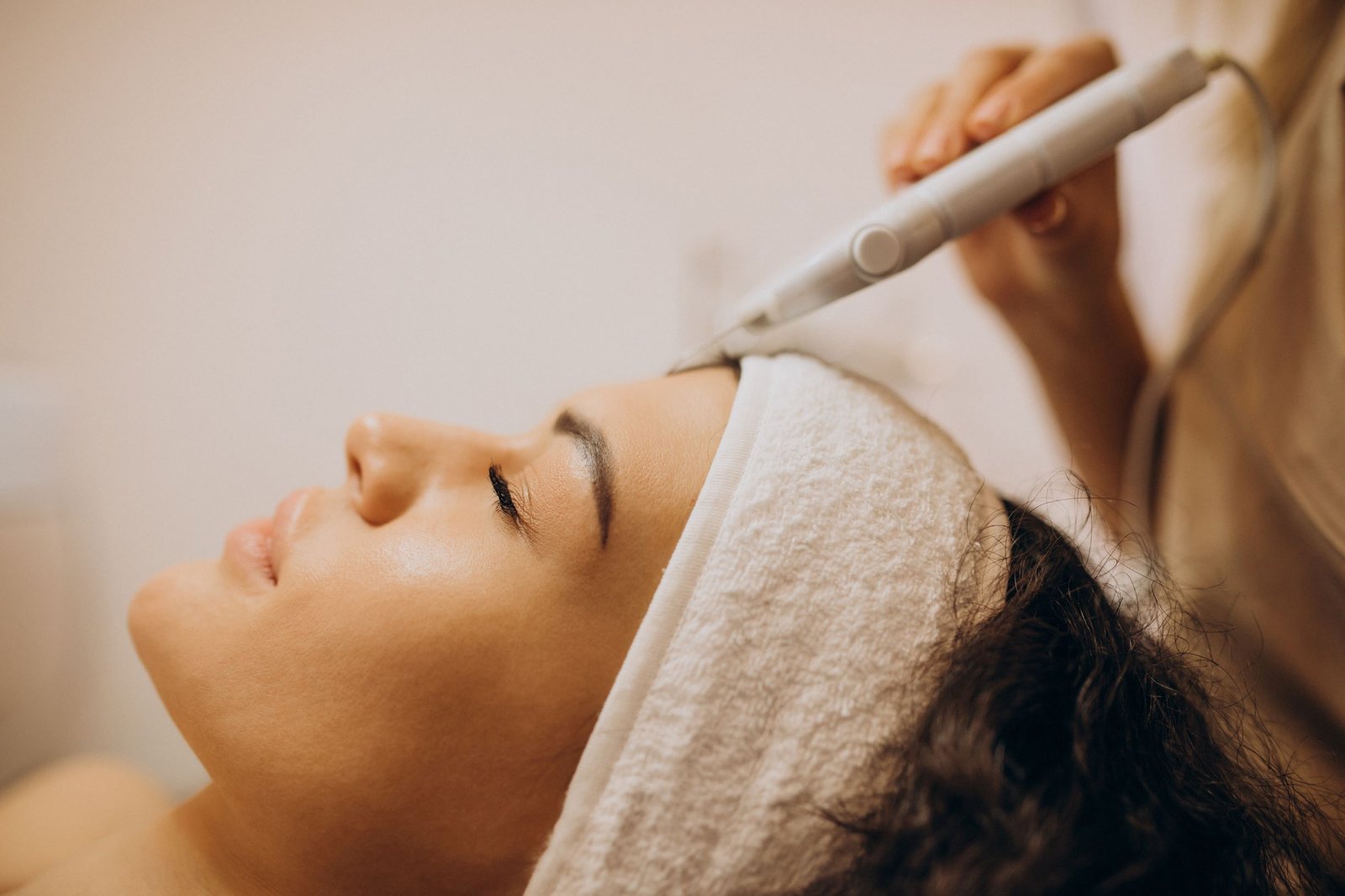
Laser Hair Removal
Laser hair removal, often referred to as laser hair removal, is a popular cosmetic procedure used to reduce or eliminate unwanted hair from various parts of the body. It is a non-invasive technique that utilizes concentrated beams of light, specifically lasers, to target and damage hair follicles, thereby inhibiting or delaying hair growth. It's crucial to consult with a qualified and experienced practitioner for a personalized treatment plan and to ensure the safety and effectiveness of the procedure. Laser hair reduction is generally considered safe when performed by trained professionals, but there are some potential side effects, such as temporary skin irritation, changes in skin pigmentation, or, in rare cases, scarring.
Laser Tatto Removal
Tattoo removal is a process used to eliminate unwanted tattoos. There are various methods available for tattoo removal, each with its own advantages and limitations. The choice of method depends on factors like the size, color, age, and location of the tattoo, as well as individual preferences and pain tolerance. Laser tattoo removal is considered the gold standard for tattoo removal due to its effectiveness and ability to target various ink colors. However, it's important to understand that complete removal is not always guaranteed, and some tattoos may leave a faint shadow or ghosting effect. The number of sessions required and the cost of removal can vary widely depending on the tattoo's characteristics and the chosen method.
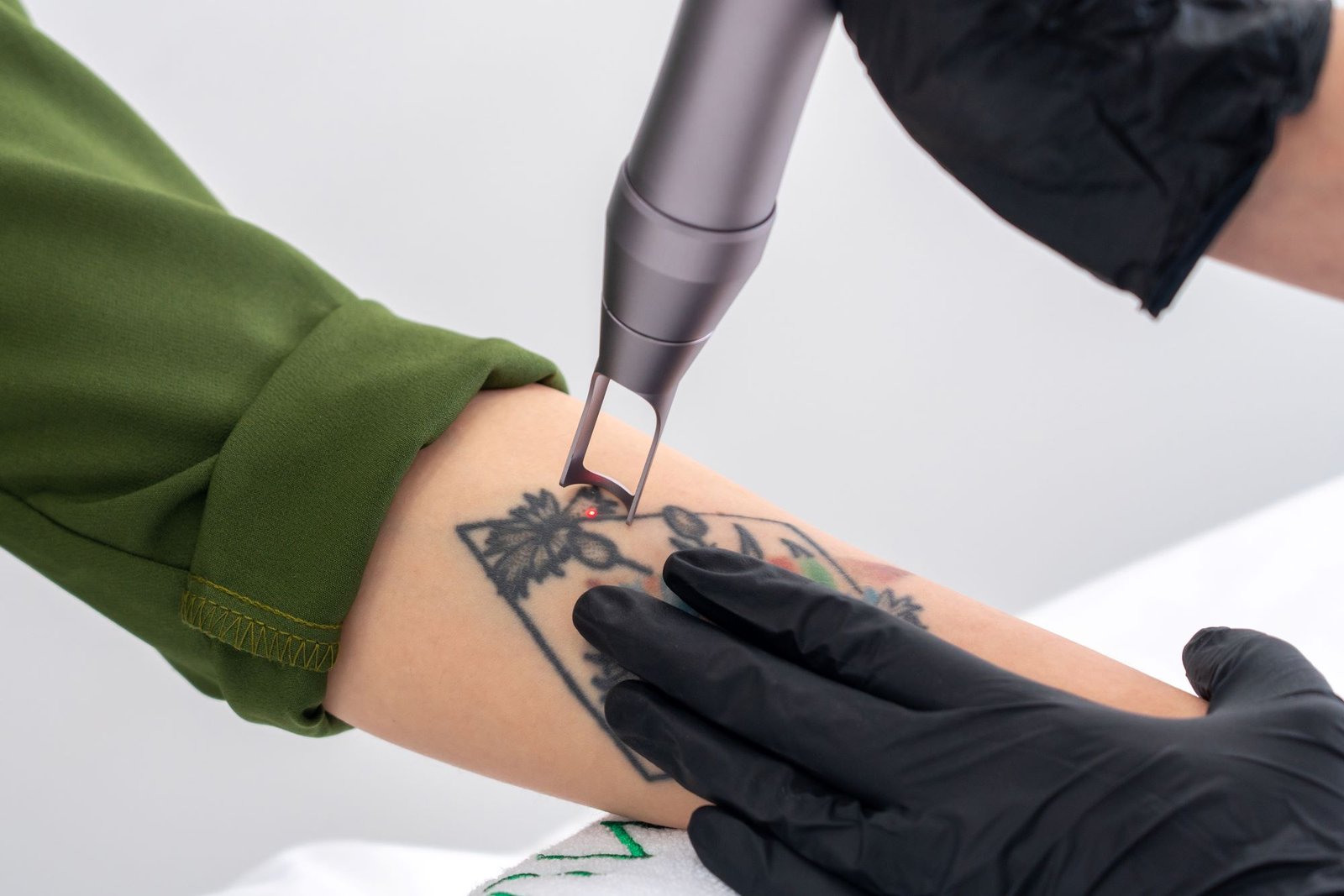
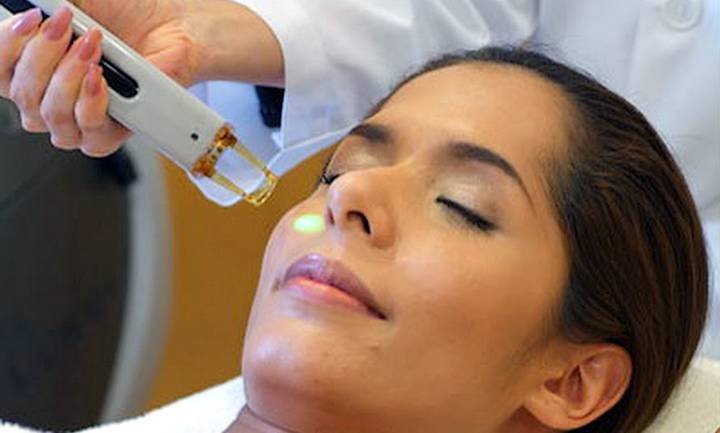
Excimer light
Excimer light refers to a type of ultraviolet (UV) light that is produced by an excimer laser or lamp. "Excimer" is short for "excited dimer," and excimer light is characterized by its ability to emit a specific wavelength of UV light. Excimer lasers use a combination of a noble gas and a halogen to create a transient molecular species (excimer) that emits light when it returns to its ground state. Excimer light is often used in medical and dermatological treatments, particularly for skin conditions such as psoriasis and vitiligo. The specific wavelength produced by excimer light, usually around 308 nanometers, is effective in treating these skin disorders.
Laser Bleach & Laser Facial
"Laser bleach" and "laser facial" are terms that may be used colloquially, but they don't represent standardized or widely recognized medical procedures. It's important to emphasize that any laser-based skin treatments should be performed by qualified and experienced professionals in a medical setting. The choice of treatment depends on your specific skin concerns, and a consultation with a dermatologist or licensed practitioner is crucial to determine the most appropriate approach for your skin type and goals. Be cautious with terms like "laser bleach," as they may not accurately represent safe and proven medical procedures.
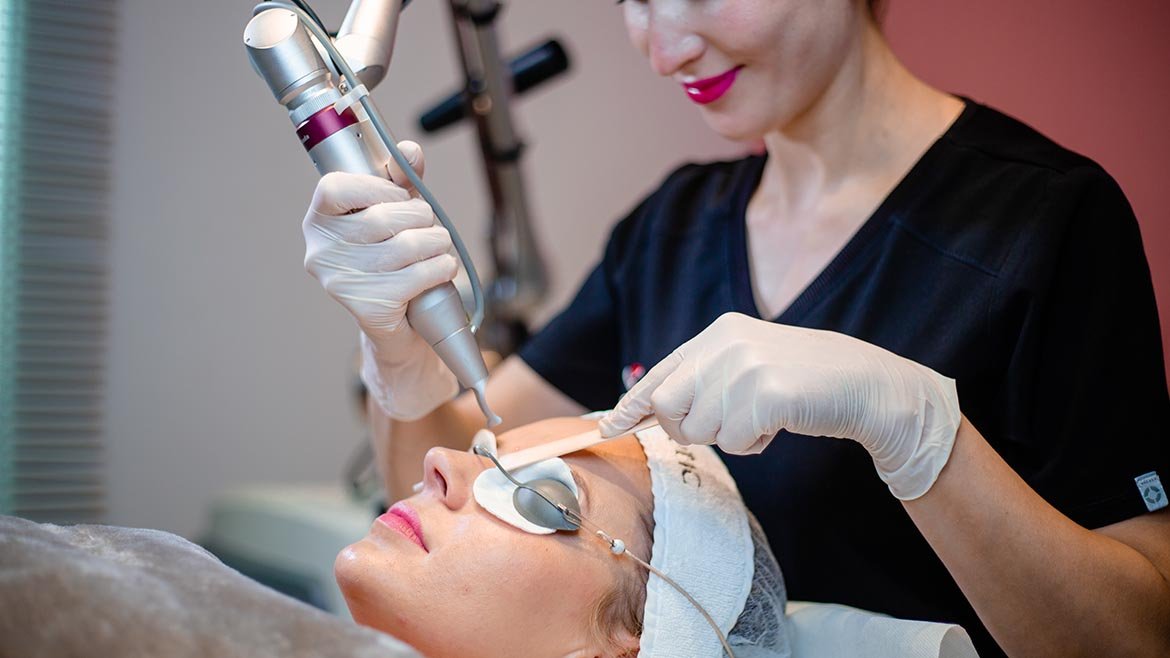
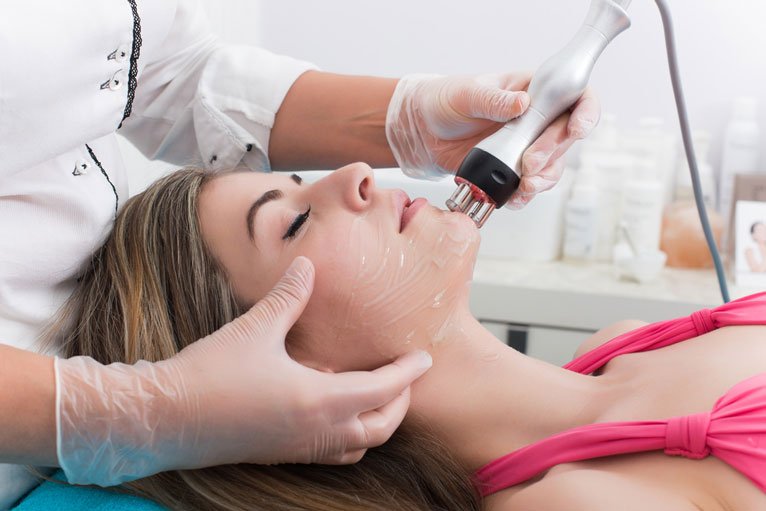
Laser For Acne & Scars
Laser treatments for acne and scars involve the use of specific laser technologies to target and address acne lesions, reduce inflammation, and improve the appearance of scars. Different types of lasers are used, each with its own mechanism of action. These laser treatments are typically performed by dermatologists or qualified healthcare professionals in a medical setting. The effectiveness of laser treatments can vary, and outcomes depend on factors such as the type of laser used, the characteristics of the scars, and individual skin response. Multiple sessions may be needed for optimal results. It's essential to discuss expectations, potential risks, and recovery with your healthcare professional before undergoing any laser treatment for acne and scars.
Laser For Pigmented Lessions
Laser treatments for pigmented lesions involve the use of specific laser wavelengths to target and break down excess pigmentation in the skin. These treatments are commonly used to address conditions such as sunspots, age spots, freckles, and certain types of hyperpigmentation. Different types of lasers are utilized based on the specific characteristics of the pigmented lesions and the individual's skin type. Sun protection before and after laser treatments is crucial to prevent complications and optimize results. A consultation with a dermatologist or laser specialist is essential to determine the most suitable laser treatment for specific pigmented lesions.It's important to note that while laser treatments can be effective for pigmented lesions, individual responses may vary. A qualified healthcare professional can assess your skin condition and recommend the most appropriate laser treatment based on your specific needs.
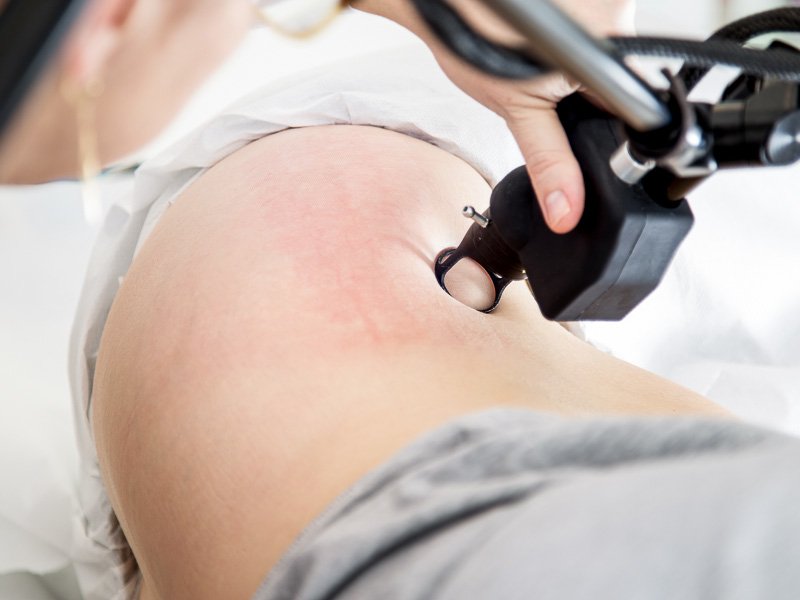
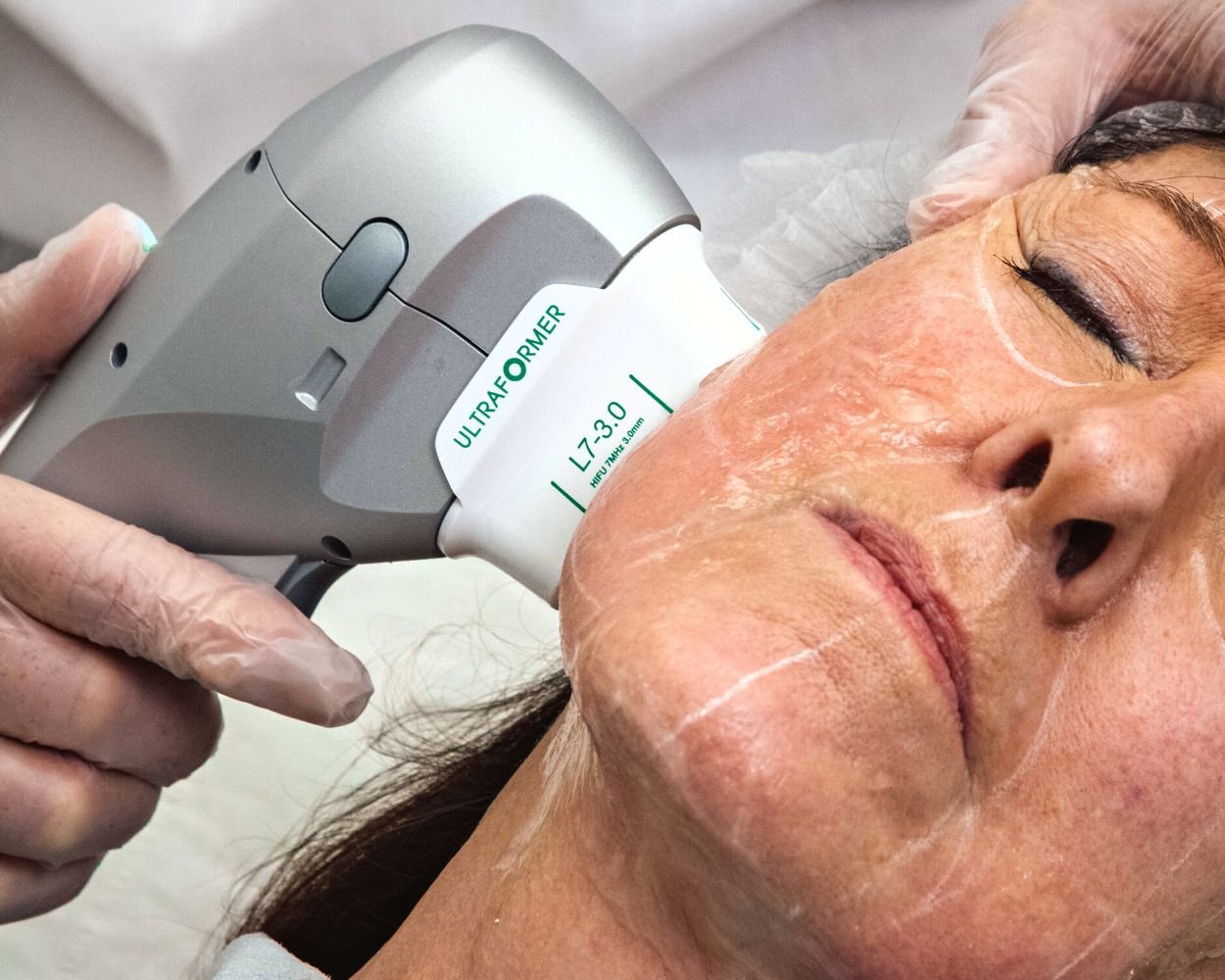
Laser For Skin Tightening - HIFU
High-Intensity Focused Ultrasound (HIFU) is a non-invasive cosmetic procedure that uses ultrasound energy to stimulate collagen production and achieve skin tightening. HIFU technology delivers focused ultrasound waves deep into the skin's structural layers, causing thermal injury and triggering a natural healing response. This, in turn, leads to the formation of new collagen, resulting in tighter and firmer skin. HIFU is commonly used for facial rejuvenation and addressing sagging or lax skin. It's important to consult with a qualified healthcare professional or dermatologist to determine if HIFU is suitable for your specific skin concerns and goals. The effectiveness of the treatment can depend on factors such as the individual's skin condition, age, and the degree of skin laxity. Additionally, alternative skin tightening procedures may be considered based on the desired outcomes and the assessment of a healthcare professional.
Needle RF - Radio Frequency
Needle Radiofrequency (RF) is a cosmetic procedure that uses radiofrequency energy delivered through fine needles to target and rejuvenate the skin. This technology is designed to stimulate collagen production, tighten the skin, and improve its overall texture. Needle RF is commonly used for facial rejuvenation, skin tightening, and addressing wrinkles and fine lines. Needle RF is generally considered safe when performed by trained and qualified professionals. However, as with any cosmetic procedure, there are potential risks and side effects that should be discussed with a healthcare professional. Results from Needle RF are not immediate and develop gradually over several weeks to months as collagen remodeling occurs. As with any cosmetic procedure, individual results can vary, and it's important to follow the guidance of a qualified healthcare professional to ensure the safety and effectiveness of the treatment.
